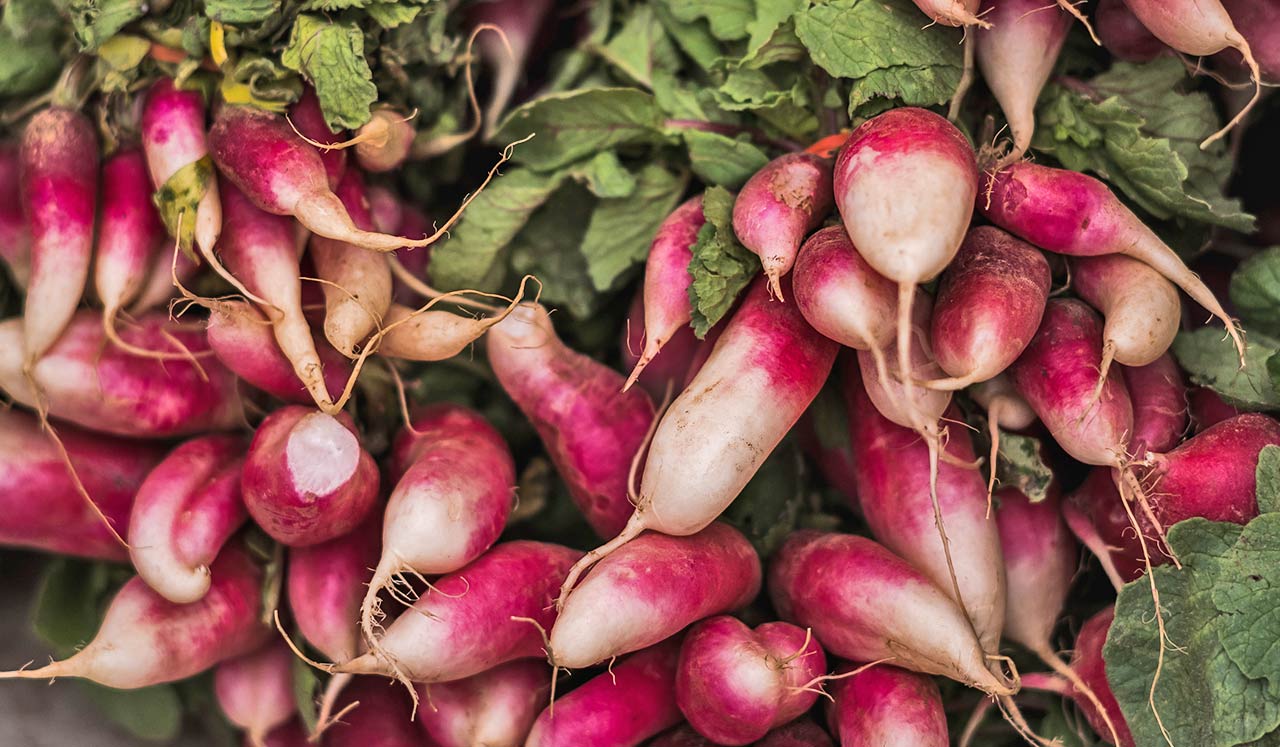“Eating seasonally is a big, fun adventure,” says Pat Greer, owner of Pat Greer’s Kitchen and a vendor at Urban Harvest farmers market. Here are Greer’s top reasons why.
Our bodies are nourished with what nature provides.
- Locally-grown, seasonal food is freshly picked. “The flavor is better,” Greer says. “Nutritional life declines when produce has been sitting a long time.”
- Our bodies are nourished with what nature provides. As temperatures climb, fluid-filled foods such as cucumbers, strawberries, oranges and watermelon ripen, she says. In the fall and winter when we need sustained fuel and warmth, root vegetables, dark greens and other crops flourish. “Our body is more attached to earth cycles and seasons than we give it credit.”
- Focusing on the time of year enables you to eat five to 13 servings of fruits and vegetables, as endorsed by the U.S. Department of Agriculture’s Dietary Guidelines and the American Heart Association.
- “Our garden easily could be the major portion of our diet,” Greer says. “It can guide us to eat fewer overly-processed foods.”
- Natural foods are better for us, helping our heart, endocrine system, skin and other organs. Fruits and vegetables often are high in fiber, which is filling, improves our digestion, and makes us chew more and often eat less.
- Prioritizing health benefits motivates you to eat more healthy food and expand your culinary horizons. “Once you realize what mustard or collard greens can do for your body, you also may realize you can have them for breakfast or any meal,” Greer says.
- A greater repertoire of fresh foods fights culinary boredom.
- You feed not only yourself, but also the local economy, especially farmers and produce purveyors. “You also support our eco-systems, bees and other pollinators.”
Get Your Daily Dose of Health & Wellness
Sign up to receive the latest articles in your inbox.

